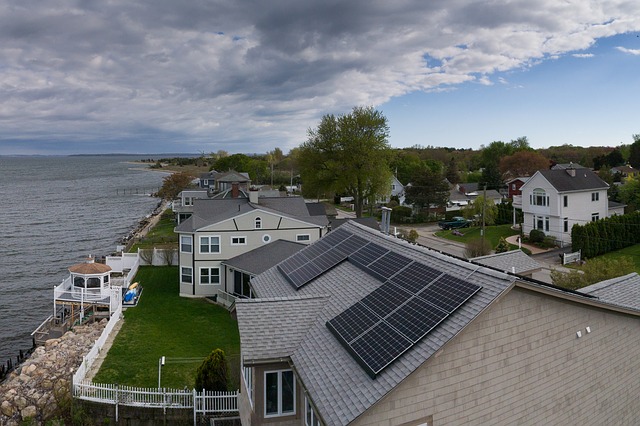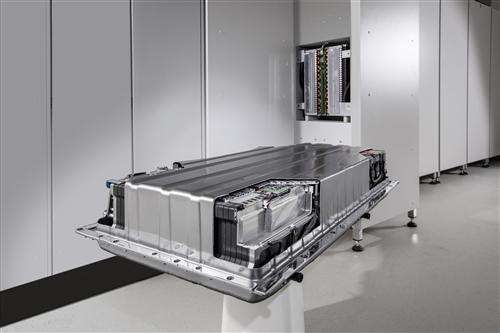Show More About Lithium Ion Battery Settlement
Jul 31, 2019 Pageview:1477
Introduction
In this modern life, many of us are depending on the ability to carry and use portable devices. These portable devices have made our lives somewhat easier and better. We use them to communicate, for lighting and even for work. A number of these portable devices, such as laptops, smartphones and flashlights rely on lithium-ion batteries. The Li-Ion batteries have the ability to hold charges for a period of time before they are charged. However, these batteries are associated with the risk of serious injuries. The manufacturers, however, have really tried to work on and improve the safety of these batteries, but in case of an explosion, they can cause serious injuries. Read on to learn more about lithium-ion battery settlements and what to do if you happen to get injured by one.
Lithium Ion Battery Class Action Settlement
First, you need to know that there are injuries that are commonly caused by the lithium-ion battery explosions. Several electronic devices such as smartphones and laptops are usually in close proximity to a user’s face. Therefore, when explosions or fire occurs, the user faces a huge possibility of getting a serious bodily injury or facial injuries.
Accidents caused by lithium batteries have been associated with a substantial increase in the number of burn of injuries taken to the emergency rooms. Most of the times the burns are very painful in nature and always require complex medical procedures including skin grafts and they can also result in lasting pain and disfiguring scars.
In the event of injuries caused by lithium-ion battery explosions or fire, there are a number of parties that can be held responsible. These include those responsible for manufacturing, selling and distributing the device that contained the battery. Most of the times, with the help of an experienced attorney you can easily determine the exact parties that you should hold responsible for your injuries.
There is a lithium-ion battery class settlement that involves lithium-ion batteries used in all kinds of consumer devices. These class action lawsuit indeed is as a result of a claim that three lithium-ion battery manufacturers colluded to fix prices and this means that consumers and even some device manufacturers paid more than they should have for lithium-ion batteries. The same lawsuit states that consumers, in turn, ended up paying more for the devices containing them.
Presently, the lithium-ion battery class action settlement amount stands at $44.95 million and this amount is expected to grow especially if other companies decide to join the settlement. One thing that you need to understand is that the amount of money that you are likely to get depends on how many people make and qualify for a claim as well as how many devices were purchased by claimants.
While this is a sizeable settlement that could result in a nice compensation, you should not depend on it entirely or rather bet the farm on a huge windfall.
What Devices?
In this lithium-ion battery lawsuit, the product categories involved are really broad. The products include laptops, tablets, notebooks, mobile phones, digital audio players, cameras, cordless power tools and camcorders. This also includes replacement batteries for any of these devices.
The Timeframe
The devices that qualify for this class action lawsuit had to be purchased within a certain timeframe. In this case, the timeframe is actually about a decade. So this means that the lawsuit is actually a wide net. For you to qualify you must have been a legal resident of the United States and purchased a device or various devices that contain lithium-ion battery between 1st January 2000 through 31st May 2011. Also, this purchase must have been done for yourself or a gift and not for resale.
Why Do You Need To Know More About Lithium Ion Battery Settlement?
if you purchased a laptop, digital camera, cordless power tool or any other times among those we have mentioned earlier that contain lithium-ion batteries since 2000, you may be entitled to a cash payment from the lithium-ion battery class action settlement. This is actually the main reason why you should know more about the lithium-ion battery settlement.
It is alleged that the world’s largest manufacturers of lithium-ion batteries violated federal and state antitrust, unfair competition and consumer protection laws by colluding to raise and fix the prices of cylindrical lithium-ion batteries for more than a decade.
Therefore, if you happened to buy any the devices that contain lithium-ion batteries from 1st January 2000 through 31st May 2011, you might have been a victim of this collusion among the largest lithium-ion battery manufacturers in the world. You might have paid higher prices for the devices than you otherwise would have paid if the defendants and co-conspirators had not engaged in the collusion to raise and fix prices as alleged in the class action lawsuit.
You need to understand the defendants are the world’s largest lithium-ion battery manufacturers and that means that they dominate the lithium-ion batteries market. It’s for that reason that they were able to work together to illegally raise and fix the prices of these batteries, as the class action claims.
However, the defendants deny these allegations, but on the other hand, several defendants have already agreed to settlements so that they can avoid the trouble, expense and uncertainty of ongoing litigation.
The settling defendants are Sony Corporation, LG Chem Ltd, LG Chem America Inc., Hitachi Maxwell Ltd, Maxwell Corporation of America and NEC Corporation.
However, the antitrust litigation is still pending against several defendants including Samsung SDI Co. Ltd, Samsung SDI America Inc., Panasonic Corporation, Panasonic Corporation of North America, Sanyo Electric Co. Ltd, Sanyo North America Corporation, NEC Tokin Corporation and Toshiba Corporation.
You should note that for one to be eligible for the benefits from the lithium-ion battery class action settlement, the consumer must have purchased a product that contains lithium-ion battery from someone other than the manufacturer, such as a retailer.
The potential award or amount each claimer will be eligible to receive is yet to be determined. However, that will depend on a number of factors such as the total number of claims filed and how many eligible products were purchased by Class Members.
How Do I Make a Claim?
Well, one of the reasons why you need to know more about the lithium-ion battery settlement is to understand how you can make a claim.
The firm that’s handling this lawsuit has set up a website for claimants. The website is known as ReverseTheCharge.com. On the website, all you have to do is select the product categories in which you made purchases, then enter your contact information and you will be good to go.
The best thing is that it does not actually require you to show proof of purchase at this stage. However, you should make an accurate claim because you will be attesting under penalty of perjury.
How Do I Exclude Myself From The Class?
You might want to exclude yourself from the lithium-ion battery class or file an objection. So to exclude yourself for the class, you are required to send a letter by mail stating that you want to be excluded from the lithium-ion batteries Antitrust Litigation – All Indirect Purchaser Actions, MDL No 2420, Indirect Purchaser Settlements. In the letter, you need to include your name, address and telephone number and your signature as well.
Lithium Ion Battery Settlement On Different Situations
As alleged in the complaint, the lithium-ion battery industry has traditionally been controlled by a few large manufacturers. These manufacturers sought to raise the prices of these batteries which was a violation of the federal, state antitrust, unfair competition and consumer protection laws. And that’s the reason for this lawsuit.
There are a few manufacturers that agreed to make the settlement to avoid the burden, expenses and uncertainties of ongoing litigation.
There have been cases where lithium-ion batteries have caused serious bodily injuries due to explosions or fire. Most of the times that require complex medical treatments. There are parties that can be held responsible for that during a lawsuit in order to get a settlement.
Conclusion
Now you know more about the Lithium-ion battery settlement. If you purchased devices that contain lithium-ion batteries from January 1, 2000, through May 31, 2011, and you were a legal resident of the United States you may be eligible for the settlement.
- Prev Article: Lithium Ion Battery Round Trip Efficiency
- Next Article: Talk About Lithium-Ion Battery Health Risks
Leave Message
Hottest Categories
-
Hottest Industry News
-
Latest Industry News











